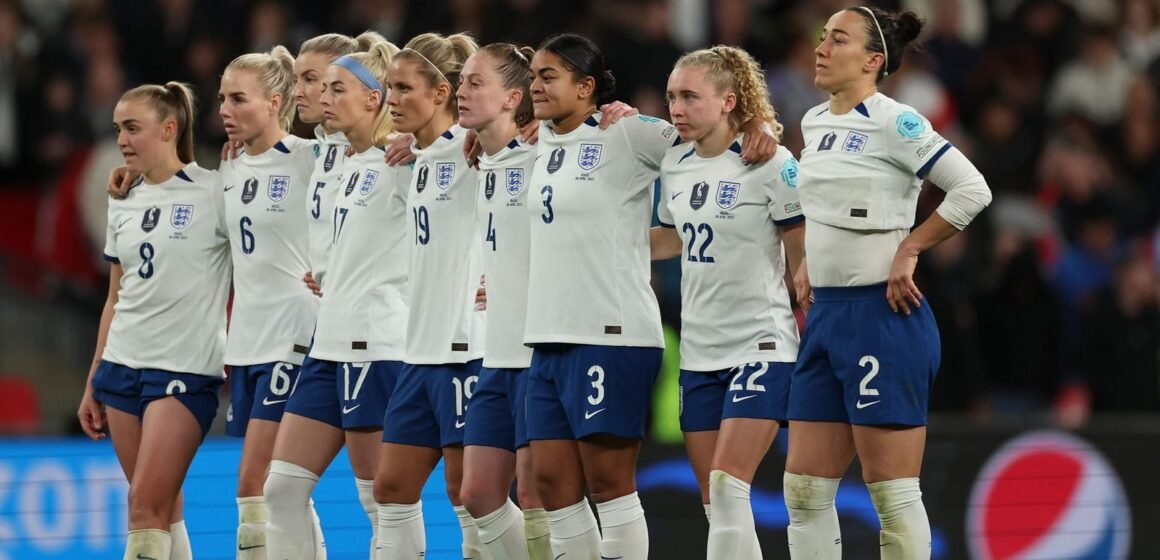A Look Back: From Once-Ignored to Center Stage
It was not so long ago that England’s women’s football team stood in the shadows, relegated to the sidelines of a sport that has long been a defining aspect of British culture. But today, that once-ignored squad has become a symbol of resilience, unity, and triumph, as they eye their nation’s first World Cup title since 1966.
The Historical Struggle: A Tale of Courage and Persistence
The history of women’s football in England is a complex and often overlooked narrative. During and after World War I, women’s football flourished, filling the gap left by top men’s players who went off to the trenches. Women’s teams attracted large crowds, raising money for charity, and even drew an audience of 53,000 in a match in 1920.
However, this popularity was met with resistance. In 1921, the FA banned women’s teams from using its facilities, declaring that football was “unsuitable for females.” This ban remained in place for a grueling 50 years.
But women like Gail Newsham, who played street football with the boys in her hometown of Preston, never let go of their passion. After the ban was lifted, the slow process of improving funding, facilities, and recognition began, culminating in the global audience that women’s football enjoys today.
The Modern Resurgence: A Symbol of Equality and Community
The resurgence of women’s football is a testament to equality, joy, and the sense of community that the sport fosters. As Huda Jawad, a feminist and member of a fan group, expresses, the team offers “something to look forward to and to be proud of, and to show that actually football, like society, can be joyous, equal, hopeful.”
The 2022 European Women’s Championship win characterized the team with smiles, hugs, and booming goals, defying the stereotype of rowdy English football fans and promoting diversity.
A Unifying Force: England’s Lionesses Capture the Heart of the Nation
The success of 23 young English women and their Dutch coach has united fans across gender, age, and background. More than 23 million people, including Prince William and Princess Charlotte, tuned in to see England beat Germany in the European Women’s Championship final.
This shared excitement extends to pubs, fan zones, and even churches, as Vicar Andrew Downes shortened his Sunday service to livestream the match, offering a humorous prayer for the Lionesses’ victory.
The Impact on Future Generations: Inspiring Hope and Change
Little girls and quite a few big girls are now proudly wearing their England shirts, reflecting a monumental shift in the perception of women’s football. The Lionesses provide a beacon of hope, setting a cultural tone for the country and inspiring the next generation of female athletes.
The efforts of pioneers like Gail Newsham, who documented the history of women’s football and played for Preston Rangers, have laid the foundation for this change.
Conclusion: A Greek Tragedy with a Happy Ending?
As England’s women’s football team prepares for the final against Spain, the anticipation is palpable. The narrative feels akin to a Greek tragedy but with a hopeful ending in sight.
The journey from a time when women were banned from the sport to the brink of a World Cup victory is nothing short of extraordinary. It’s a story of redemption, a saga of overcoming injustices, and a testament to the unbreakable spirit of women who fought for their place on the field.
As the nation rallies behind the Lionesses, the story of England’s women’s football team stands as a symbol of what can be achieved through resilience, unity, and sheer determination. With the World Cup within reach, one thing is certain: this is a team that has already made history, and they are not done yet. It’s a story that transcends sports, offering lessons in courage, equality, and hope for all.


Leave a Reply